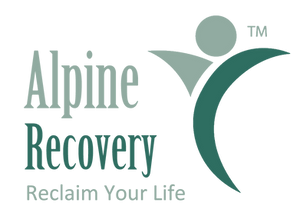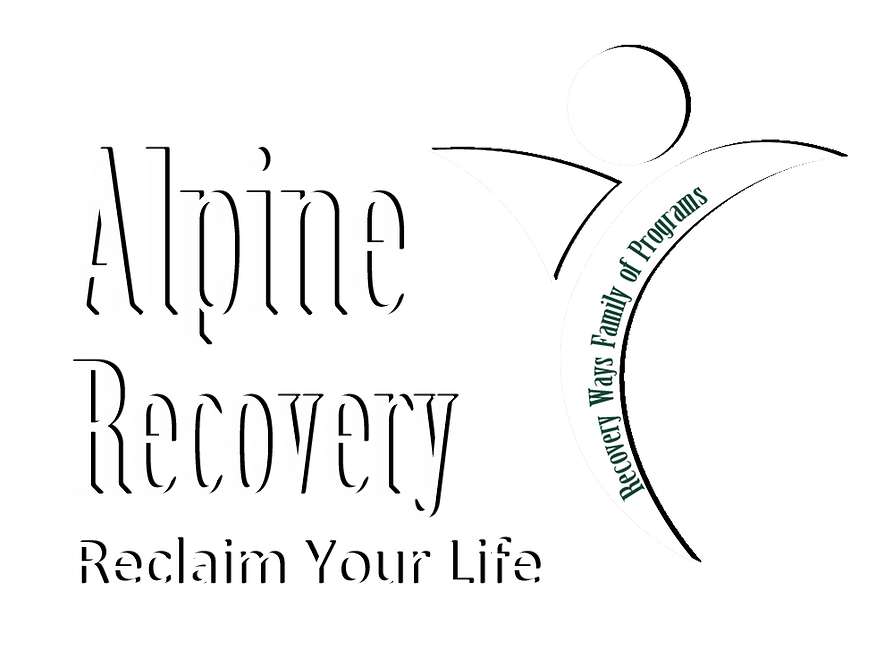Rehab Facility in Washington
Supporting a loved one who is staying at a rehab facility in Washington can be an emotionally challenging and deeply rewarding experience. Rehabilitation is often a necessary step for individuals struggling with addiction to regain control over their lives. For family members and close friends, understanding how to provide the right support is essential for fostering recovery while maintaining healthy relationships. This guide will explore how you can offer meaningful support during your loved one’s stay at a rehab facility in Washington. From recognizing when professional help is needed to celebrating progress after rehab, we’ll cover it all.
Recognizing the Signs that Support is Needed
Acknowledging that a loved one requires professional help can be difficult, but it’s an important and courageous first step in their recovery—and yours. It’s a moment of clarity that shows you care deeply about their well-being and want to see them flourish. This decision often means setting aside fear or hesitation and focusing on what’s truly best for their health and future. By encouraging them to seek support, you’re helping them access the tools, guidance, and expertise they need to heal, grow, and ultimately thrive in ways they may not be able to achieve alone. It’s a powerful act of love and compassion.
Identifying Changes in Behavior and Mood
Behavioral shifts, such as withdrawal from family and friends, sudden and unexplained mood swings, or an increase in secrecy about daily activities, are often important red flags indicating deeper issues. These changes in behavior can suggest emotional struggles, anxiety, or other challenges that may require attention. Additionally, physical changes, such as unexplained weight loss, noticeable fatigue, or a decline in personal hygiene, can also be warning signs that someone may need support. Paying attention to these signs and addressing them early can make a significant difference in providing the necessary help.
Understanding When Professional Help Is Necessary
Rehabilitation becomes essential when an individual’s addiction starts to take a toll on their physical and mental health, strain relationships, and disrupt their ability to function in daily life. Addiction can manifest in various forms, such as substance abuse, gambling, or even technology dependency, and its impact can reach every corner of a person’s life. If you’re unsure whether rehabilitation is the right step, consulting with a mental health or addiction specialist can provide clarity and guidance. These professionals can help assess the situation, explore treatment options, and offer support tailored to the individual’s needs.
Preparing Yourself to Offer Support
Becoming a pillar of support doesn’t mean you need to have all the answers or solve every problem. What truly matters is your genuine willingness to listen with empathy, learn from the experiences of others, and adapt your approach as needed. It’s about being present, offering encouragement, and creating a safe space where others feel heard and valued.
Choosing the Right Rehab Facility in Washington
The next pivotal step is finding the right rehab facility in Washington, a decision that can significantly impact the recovery journey. Washington state is home to many reputable treatment centers, offering a range of programs tailored to different needs. From inpatient facilities with 24/7 support to outpatient programs that provide flexibility, there are options for everyone. However, not every rehab facility in Washington is created equal, so it’s essential to research thoroughly and choose a facility that aligns with your specific goals and requirements.
Factors to Consider
- Location: Proximity to family often influences recovery outcomes, as regular visits foster accountability and encouragement.
- Type of Treatment: Determine whether your loved one would benefit more from inpatient, outpatient, or specialized care (e.g., dual-diagnosis programs for addiction and mental health).
- Staff Qualifications: Ensure the facility employs licensed professionals with experience in addiction treatment.
Research Tools
Online resources like SAMHSA (Substance Abuse and Mental Health Services Administration) and Washington-specific health directories offer invaluable tools to help you navigate your treatment options. SAMHSA’s website includes a comprehensive database of treatment programs across the country, allowing you to search by location, type of service, or specific needs such as adolescent care or dual diagnosis treatment. Similarly, Washington-focused health directories provide detailed information about local facilities, the services they offer, their locations, and even reviews from other patients, helping to guide your decision-making process. These platforms are designed to simplify your search, making it easier to compare facilities and find the one that best meets your unique needs and circumstances. Whether you’re looking for inpatient care, outpatient services, or specialized support, these resources can help you take the first step toward recovery.
Involving Your Loved One
Your loved one should feel actively involved in their recovery decisions, as this can significantly impact their sense of control and motivation. Take the time to present them with clear and thoughtful options, outlining the potential benefits and challenges of each choice. Encourage open discussions where they feel comfortable expressing their concerns, preferences, and goals. By fostering a collaborative approach, you can help ensure they feel heard, valued, and empowered to take an active role in their journey toward recovery.
Preparing for Your Loved One’s Stay at Rehab
Once the facility has been chosen, proper preparation is key to making the transition as smooth and stress-free as possible. Start by gathering all necessary documents, such as medical records, insurance information, and any required forms, to ensure a seamless intake process. Communicate with the staff at the facility to address any questions, confirm move-in details, and understand the daily routines and services provided. It’s also important to ensure that the individual feels comfortable and informed about the process—this might involve visiting the facility beforehand, discussing what to expect, or helping them personalize their new space with familiar items. Taking these steps can help ease the transition and create a positive experience for everyone involved.
What to Pack
Provide your loved one with essentials such as comfortable clothing that’s easy to wear and suitable for different weather conditions, toiletries like toothbrushes, toothpaste, shampoo, and soap, along with personal identification documents such as an ID card or insurance details. Don’t forget any prescribed medication they may need, ensuring it’s clearly labeled and up-to-date. To help them feel more at home, consider adding personal touches like a journal for writing down their thoughts, a favorite book they enjoy rereading, or even photos of family and friends to keep them connected to loved ones while away. Small comforts can make a big difference.

Setting Realistic Expectations
Recovery is not a linear process, and it’s important to remind your loved one of this. There may be setbacks along the way, but these do not mean failure—they are simply a part of the journey. Encourage them to understand that true success requires patience, commitment, and consistent effort over time. Celebrate their progress, no matter how small, and remind them that each step forward brings them closer to their goals.
Emotional Preparation
This period might bring up feelings of guilt, fear, or sadness for both you and your loved one as you navigate the challenges ahead. These emotions are completely normal but can feel overwhelming at times. Consider speaking with a counselor or therapist to help process these feelings, build coping strategies, and maintain open communication. Seeking support can provide you with the tools to approach this journey with understanding and set a positive tone for your loved one’s rehab stay, fostering a sense of hope and encouragement for their recovery.
Maintaining Communication During Rehabilitation
Staying connected with loved ones is vital for emotional support, especially during challenging times when encouragement and understanding can make a big difference. Maintaining these connections can provide a sense of comfort, security, and motivation for individuals working through difficult periods. However, it’s equally important to understand and respect the boundaries set by the rehab facility. These guidelines are carefully designed to create a focused and distraction-free environment where individuals can fully dedicate themselves to their recovery journey. By limiting outside distractions, the facility ensures that participants can concentrate on personal growth, healing, and developing the tools they need for long-term success. Balancing support from loved ones with adherence to facility rules can play a key role in fostering meaningful progress.
Facility Policies on Communication
Ask the treatment center about their policies on phone calls, emails, and visits to avoid misunderstandings.
Tips for Supportive Communication
- Focus on encouragement rather than criticism.
- Use empathetic language that shows you’re there to support their growth.
- Celebrate small victories to boost their confidence.
Supporting Recovery Beyond the Rehab Facility
Rehabilitation doesn’t end when your loved one leaves the center. The journey to recovery is ongoing, and your support continues to play a critical role in their long-term success. From helping them navigate challenges to encouraging healthy habits and providing emotional reassurance, your involvement can make all the difference in building a stable and fulfilling life after treatment.
Setting Up a Supportive Home Environment
Create a safe, substance-free environment where your loved one can fully focus on their recovery journey. Remove any potential triggers or substances from the home to support their progress and reduce temptation. Openly discuss boundaries and expectations together, ensuring clear communication to establish a mutual understanding of roles, responsibilities, and goals during this important time. Encourage honesty and provide reassurance that you’re there to support them every step of the way.
Recognizing Signs of Relapse
Educate yourself on the warning signs of relapse, such as increased isolation, a return to old habits, or sudden changes in mood or behavior. These signs can often be subtle, like avoiding social interactions, neglecting responsibilities, or revisiting environments tied to past struggles. Address these early signs compassionately by creating a safe space for conversation and encouraging your loved one to seek professional help or support immediately. Early intervention can make a significant difference in helping them stay on track.
Engaging Without Overstepping
Actively participate in family therapy or educational workshops to better understand the challenges your loved one is facing and learn effective ways to support them. These sessions can provide valuable tools and insights to strengthen your relationships and foster healing. However, it’s equally important to respect their boundaries and give them the space they need to process their emotions and work through their healing journey independently. Balancing support with independence is key to promoting long-term recovery.
Educating Yourself
The more you understand about addiction and recovery, the better equipped you’ll be to provide meaningful support to your loved one. Educating yourself can help you approach the situation with empathy and knowledge, creating a stronger foundation for positive communication. Many rehab facilities offer seminars, workshops, or reading materials specifically designed for family members and friends. These resources can provide valuable insights into the challenges of addiction, the recovery process, and how you can play an active role in supporting their journey toward healing.
Prioritizing Self-Care
Take time for activities that recharge you and bring balance to your life. Whether it’s practicing yoga to center your mind and body, helping to reduce stress and improve flexibility, or diving into a favorite hobby that sparks joy and creativity, such as painting, gardening, or playing music, these moments matter. Spending quality time with loved ones can also help you strengthen meaningful connections, allowing you to share laughter, support, and unforgettable memories. Even small acts of self-care, like enjoying a quiet cup of tea, going for a walk in nature, or reading a good book, can make a big difference in your overall well-being and help you face life with renewed energy and purpose.
Conclusion
Supporting a loved one during their stay at a rehab facility in Washington is a challenging but deeply impactful endeavor. It requires patience, understanding, and a willingness to learn about their journey to recovery. Taking the time to educate yourself about their treatment process can help you provide the right kind of support and encouragement. Keep in mind that recovery is not a solo path—it’s a collaborative effort that often benefits from open communication with the rehab facility’s professionals, who can offer guidance and resources tailored to your loved one’s needs. Don’t hesitate to reach out to us for assistance by calling 1 (360) 658-1388 or clicking Alpine Recovery. By offering compassion and informed action, you can play a pivotal role in their recovery and even strengthen your relationship along the way. Remember, your support—no matter how small—can make all the difference in their journey toward a healthier, happier life.



